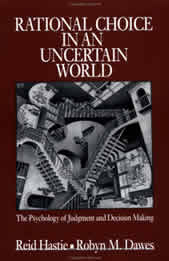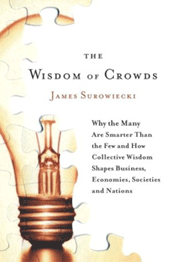« August 2004 | Main | October 2004 »
September 30, 2004
Upcoming Decision Science Conference
SOCIETY FOR JUDGEMENT AND DECISION MAKING 2004 ANNUAL CONFERENCE 25TH ANNIVERSARY EDITION
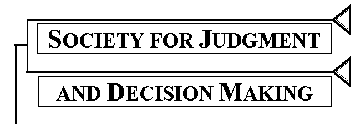
The 25th Annual Conference of the Society for Judgment and Decision Making will be held November 19th to the 22th 2004 at the Millennium Hotel Minneapolis in Minneapolis, Minnesota.
The Society for Judgment and Decision Making is an interdisciplinary academic organization dedicated to the study of normative, descriptive, and prescriptive theories of decision. Its members include psychologists, economists, organizational researchers, decision analysts, and other decision researchers. The Society's primary event is its Annual Meeting at which Society members present their research.
The registration form for the 2004 annual meeting is now available! Go to the Society for Judgment and Decision Making Home page and please print out the form. Then mail it to the address given to register. And to members, don't forget to pay your annual dues. You can read the 2004 annual meeting program (PDF format) and a list of posters with abstracts (Excel format). Another listing can be found in the September 2004 SJDM Newsletter.
The Organization Comitte is:
Eric Johnson, President (ejj3@columbia.edu)
Joshua Klayman, Past President (joshk@uchicago.edu)
Maya Bar-Hillel, President-Elect (msmaya@math.huji.ac.il)
Bud Fennema, Secretary-Treasurer (bfennema@garnet.acns.fsu.edu)
Alan Schwartz, Webmaster (alansz@sjdm.org)
Warren Thorngate, Newsletter Editor (warrent@ccs.carleton.ca)
Richard Coughlan, Conference Coordinator (rcoughla@richmond.edu)
Craig Fox, Program Committee Chair (craig.fox@anderson.ucla.edu)
This meeting will be held just after the Brunswik Society 20th Annual International Meeting and the Psychonomic Society Annual Meeting.
Posted by DSN at 01:18 AM | Comments (0)
September 27, 2004
Daniel Kahneman
DECISION SCIENCE RESEARCHER PROFILE: DANIEL KAHNEMAN WINNER OF THE 2002 NOBEL PRIZE IN ECONOMIC SCIENCES
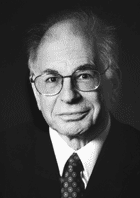
Currently, Daniel Kahneman is both the Eugene Higgins Professor of Psychology and professor of public affairs in the Woodrow Wilson School of Public and International Affairs at Princeton University and a fellow at The Hebrew University in Jerusalem. He is a pioneer and theorist in human judgment and decision-making research. He is known for his collaboration with Amos Tversky in establishing a cognitive basis for common human reasoning using heuristics, and in developing Prospect Theory and other pivotal theories. Kahneman received his B.Sc. in Mathematics and Psychology from The Hebrew University in Jerusalem in 1954, and his Ph.D. in Psychology from the University of California, Berkeley in 1961.
Recent Academic History:
*Former professor of psychology at The University of California, Berkeley
*Fellow at The Canadian Institute for Advanced Research
*Former professor of psychology at The University of British Columbia
*Fellow at The Center for Advanced Study in the Behavioral Sciences
*Former professor at The Hebrew University in Jerusalem
*Member of The American Academy of Arts and Sciences
*Member of The National Academy of Sciences
*Fellow of The American Psychological Association
*Fellow of The American Psychological Society
*Fellow of The Society of Experimental Psychologists
*Fellow of The Econometric Society
Awards:
*The Distinguished Scientific Contribution Award of the American Psychological Association
*The Warren Medal of the Society of Experimental Psychologists
*The Hilgard Award for Career Contributions to General Psychology
*The winner of the 2002 Bank of Sweden Prize in Economic Sciences in Memory of Alfred Nobel
Quotes:
"In one experience I remember vividly, there was a rich range of shades. It must have been late 1941 or early 1942. Jews were required to wear the Star of David and to obey a 6 p.m. curfew. I had gone to play with a Christian friend and had stayed too late. I turned my brown sweater inside out to walk the few blocks home. As I was walking down an empty street, I saw a German soldier approaching. He was wearing the black uniform that I had been told to fear more than others - the one worn by specially recruited SS soldiers. As I came closer to him, trying to walk fast, I noticed that he was looking at me intently. Then he beckoned me over, picked me up, and hugged me. I was terrified that he would notice the star inside my sweater. He was speaking to me with great emotion, in German. When he put me down, he opened his wallet, showed me a picture of a boy, and gave me some money. I went home more certain than ever that my mother was right: people were endlessly complicated and interesting."
"A framing effect is demonstrated by constructing two transparently equivalent versions of a given problem, which nevertheless yield predictably different choices. The standard example of a framing problem, which was developed quite early, is the 'lives saved, lives lost' question, which offers a choice between two public-health programs proposed to deal with an epidemic that is threatening 600 lives: one program will save 200 lives, the other has a 1/3 chance of saving all 600 lives and a 2/3 chance of saving none. In this version, people prefer the program that will save 200 lives for sure. In the second version, one program will result in 400 deaths, the other has a 2/3 chance of 600 deaths and a 1/3 chance of no deaths. In this formulation most people prefer the gamble. If the same respondents are given the two problems on separate occasions, many give incompatible responses. When confronted with their inconsistency, people are quite embarrassed. They are also quite helpless to resolve the inconsistency, because there are no moral intuitions to guide a choice between different sizes of a surviving population."
"The focus of my research for the past fifteen years has been the study of various aspects of experienced utility - the measure of the utility of outcomes as people actually live them. The concept of utility in which I am interested was the one that Bentham and Edgeworth had in mind. However, experienced utility largely disappeared from economic discourse in the twentieth century, in favor of a notion that I call decision utility, which is inferred from choices and used to explain choices. The distinction could be of little relevance for fully rational agents, who presumably maximize experienced utility as well as decision utility. But if rationality cannot be assumed, the quality of consequences becomes worth measuring and the maximization of experienced utility becomes a testable proposition."
"Although behavioral economics has enjoyed much more rapid progress and gained more respectability in economics than appeared possible fifteen years ago, it is still a minority approach and its influence on most fields of economics is negligible. Many economists believe that it is a passing fad, and some hope that it will be. The future may prove them right. But many bright young economists are now betting their careers on the expectation that the current trend will last. And such expectations have a way of being self-fulfilling."
Selected Books:
*Choices, Values and Frames by Daniel Kahneman and Amos Tversky
*Judgment under Uncertainty: Heuristics and Biases by Daniel Kahneman, Paul Slovic, Amos Tversky
*Well-Being: Foundations of Hedonic Psychology by Daniel Kahneman, Edward Diener, Norbert Schwarz
Read More:
Daniel Kahneman Curriculum Vitae
Daniel Kahneman Autobiography at Nobelprize.org .
Daniel Kahneman's Prize Lecture
Posted by DSN at 06:19 PM | Comments (0)
September 13, 2004
Looking for a good introduction to decsion science?
RATIONAL CHOICE IN AN UNCERTAIN WORLD BY REID HASTIE AND ROBYN M. DAWES
The Psychology of Judgement and Decision Making.
Intended as an introductory textbook for both undergraduate and graduate students, Rational Choice In An Uncertain World lays out the foundations of decision science. In a non-technical style, Hastie and Dawes compare basic principles of rationality with actual behavior in decision-making. This book is not about what to choose, rather about how we choose.
Excerpt:
"Humans evolved from ancestors hundreds of thousands of years ago who lived in small groups and spent most of their waking hours foraging for sustenance. When we weren't searching for something to eat or drink, we were looking for safe places to live, selecting mates, and protecting the offspring from those unions. Our success in accomplishing these "survival tasks" did not arise because of acute senses or especially powerful physical capacities. We dominate this planet today because of our distinctive capacity for good decision making."
"The new knowledge that underlies the filed of decision making is simple principles that define rationality in decision making and empirical facts about the cognitive limits that lead us not to decide rationally."
"One fundamental point of this book is that we often think in automatic ways when making judgments and choices, that these automatic thinking processes can be described by certain psychological rules (e.g., heuristics) and that they can systematically lead us to make poorer judgments and choices that we would by thinking in a more controlled manner abut our decisions. This is not to say that controlled thought is always better than intuitive thought. In fact, we hope the reader who finishes the book will have a heightened appreciation of the relative advantages of the two modes of thinking."
Review by Practical Philosophy: The Journal of the Society for Philosophy in Practice
About the Authors:
PROFESSOR REID HASTIE
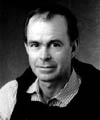
Reid Hastie is a Professor of Behavioral Science on the faculty of the Graduate School of Business in the Center for Decision Research at the University of Chicago. His primary research interests are in the areas of judgment and decision making (legal, managerial, medical, engineering, and personal), memory and cognition, and social psychology. He is best known for his research on legal decision making (Social Psychology in Court [with Michael Saks]; Inside the Jury [with Steven Penrod and Nancy Pennington]; and Inside the Juror [edited]) and on social memory and judgment processes (Person Memory: The Cognitive Basis of Social Perception [several co-authors]). Currently he is studying: the role of explanations in category concept representations (including the effects on category classification, deductive, and inductive inferences); civil jury decision making; the role of frequency information in probability judgments; and the psychology of reading statistical graphs and maps.
ROBYN M. DAWES, Ph.D.
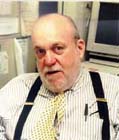
Robyn Dawes is the Charles J. Queenan, Jr. University Professor Ph.D.: University of Michigan Department Member Since: 1985 at the Department of Social & Decision Sciences at Carnegie Mellon University. His research interests spans five areas: intuitive expertise, human cooperation, retrospective memory, methodology and United States AIDS policy. He states, "I write journal articles and books because I believe the information they contain could be valuable -- at least on a "perhaps, maybe" basis. I have never written anything with the expectation that it will sell, or become a "citation classic" (although one of my articles has). I believe that in American culture we are obsessed with outcomes rather than with behaving in ways that tend to bring about the best expected outcomes, while "time and chance" play a very important role. [...] Some of my clinical colleagues claim that feelings are not understood until they can be put into words. My own view is that every translation of a feeling, thought, idea or mathematical form into words involves at least a small element of automatic distortion, often a much larger element."
Posted by DSN at 10:06 PM | Comments (0)
September 12, 2004
Do crowds make better decisions than individuals? Yes, says author James Surowiecki in The Wisdom of Crowds
THE WISDOM OF CROWDS BY JAMES SUROWIECKI
Why the many are smarter than the few and how collective wisdom shapes business, economies, societies, and nations
Traditionally, social sciences view the crowd as an unpredictable, dumb, and panicky monster. Now there is another point of view. New Yorker columnist James Surowiecki, who writes a popular business column and much about how markets work, has noticed a few things about crowd behavior that contradicts this view. He says in fact that crowds of all kinds can be remarkably wise. In The Wisdom of Crowds, Surowiecki explores the notion that large groups of people are smarter than an elite few, no matter how brilliant; crowds can be better at solving problems, fostering innovation, coming to wise decisions and even predicting the future.
Excerpt:
"If, years hence, people remember anything about the TV game show "Who Wants to Be a Millionaire?," they will probably remember the contestants' panicked phone calls to friends and relatives. Or they may have a faint memory of that short-lived moment when Regis Philbin became a fashion icon for his willingness to wear a dark blue tie with a dark blue shirt. What people probably won't remember is that every week "Who Wants to Be a Millionaire?" pitted group intelligence against individual intelligence, and that every week, group intelligence won."
"There are four key qualities that make a crowd smart. It needs to be diverse, so that people are bringing different pieces of information to the table. It needs to be decentralized, so that no one at the top is dictating the crowd's answer. It needs a way of summarizing people's opinions into one collective verdict. And the people in the crowd need to be independent, so that they pay attention mostly to their own information, and not worrying about what everyone around them thinks."
Review from the Wisdom of Crowds Home Page:
"The Wisdom of Crowds is a brilliant but accessible biography of an idea, one with important lessons for how we live our lives, select our leaders, conduct our business, and think about our world."
About the Author:
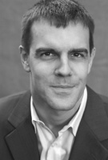
James Surowiecki is a staff writer at The New Yorker, where he writes the popular business column, "The Financial Page." His work has appeared in a wide range of publications, including the New York Times, the Wall Street Journal, Artforum, Wired, and Slate. He lives in Brooklyn, New York.
Review of The Wisdom of Crowds by The New York Times
Posted by DSN at 07:09 PM | Comments (0)
September 07, 2004
Why do people choose to work alone or on teams? Which has better outcomes?
INDIVIDUAL OR TEAM DECISION-MAKING - CAUSES AND CONSEQUENCES OF SELF-SELECTION
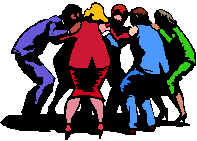
People are social animals. There are at least two kinds of decision-making techniques. One technique is to make decisions individually. The other technique is to make decisions as a team. A recent study by Martin Kocher, Sabine Straub and Matthias Sutter, in Discussion Papers on Strategic Interaction from Max Planck Institute for Research into Economic Systems, Strategic Interaction Group, investigates the causes and consequences of individual or team decision-making and what effect the liberty to opt for either technique has on an individual's ability to make effective decisions. Kocher, Straub and Sutter found that the endogenously formed teams performed significantly better by earning nearly twice as much money in an experiment as did individuals.
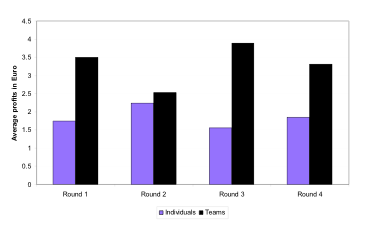
We can see here that teams earned significantly more than individuals in rounds 1, 3, and 4 as well as for all rounds together. Team members win on average 13.2 euros but individuals only 7.4 euros.
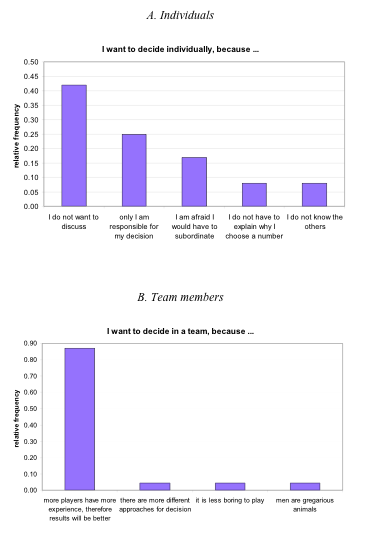
Participants were encouraged to write down any additional reasons that were important for their decisions. We see here a summary of the additional arguments into nine different categories.
The most important reason for participants who opted for team decision-making was the expectation of better decisions and, thus, higher profits. Most of the subjects choosing individual decision making stressed the importance of being able to decide alone, without any need for discussion or compromise. No participant who prefered to act alone referred to profits or the quality of decision-making, instead all arguments were related to the process of decision-making. Both types of decision makers, interestingly, were highly satisfied with their chosen role.
Abstract:
Even though decision-making in small teams is pervasive in business and in private life, little is known about subjects' preferences with respect to individual and team decision-making and about the consequences of respecting these preferences. We report the results from an experimental beauty-contest game, where subjects could endogenously choose their preferred way of decision-making. About 60% of subjects prefer to act in a team, and teams win the game significantly more often than individuals. Nevertheless, both individuals and team members are highly satisfied with their chosen role, but for different reasons.
Excerpt:
"Teams are generally expected to make better decisions than individuals, and decisions made by teams are often accepted to a larger extent by those affected by these decisions. Furthermore, decision-making teams allow for the possibility to decentralize authority, encourage gains from knowledge transfers and may help to introduce optimal incentive schemes that can be supervised by peer pressure rather than by more costly shirking detection technologies. Thus, teams have become important vehicles for identifying high-quality solutions to emerging organizational problems (Jehn et al., 1999)."
Posted by DSN at 06:57 PM | Comments (0)
